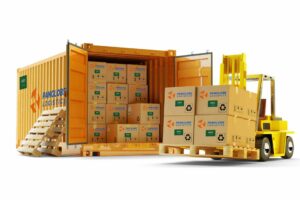The logistics transportation sector is undergoing fundamental transformations thanks to rapid technological advancements. These changes are not only facilitating operations but are also fundamentally altering how we think about managing supply chains and delivering goods.
Key Influential Technologies:
-
Internet of Things (IoT):
- Real-time accurate tracking of shipments.
- Monitoring the condition of goods during transport and storage.
- Improving inventory management and reducing waste.
-
Artificial Intelligence and Machine Learning:
- Analyzing big data to make better decisions regarding planning and routing.
- Predicting demand and reducing excess inventory.
- Enhancing the efficiency of logistics operations.
-
Robots and Automation:
- Automating repetitive processes in warehouses and factories.
- Increasing the accuracy and speed of sorting and packaging operations.
- Reducing human errors.
-
Self-Driving Cars and Trucks:
- Reducing accidents caused by human errors.
- Increasing fuel and time efficiency.
- Continuous operation without the need for driver rest breaks.
-
3D Printing:
- Reducing the need to stockpile spare parts.
- Customizing products on demand and reducing delivery time.
Positive Impacts of Technology on Logistics Transportation:
-
Increased Efficiency:
Through process automation and reduced human errors.
-
Cost Reduction:
By improving inventory management and reducing waste.
-
Enhanced Customer Service:
By accurately tracking shipments and delivering them on time.
-
Sustainability:
By reducing carbon emissions and improving energy management.
-
Greater Flexibility:
The ability to quickly adapt to changes in demand.
Challenges Facing the Sector:
-
High Costs:
Adopting new technologies requires significant investments.
-
Cybersecurity:
Protecting data and systems from cyberattacks.
-
Workforce Impact:
The effect on job opportunities with increased automation.
-
Government Regulations:
Adapting legislation to technological advancements.
The Future of Logistics Transportation:
The sector is witnessing radical transformations as companies move towards building integrated smart supply chains. Technology will play a pivotal role in achieving this goal by connecting all parts of the chain, from suppliers to consumers.
Conclusion:
Technology is a key driver of change in the logistics transportation sector. Companies that embrace these technologies will be in a better position to compete and grow in the future.




